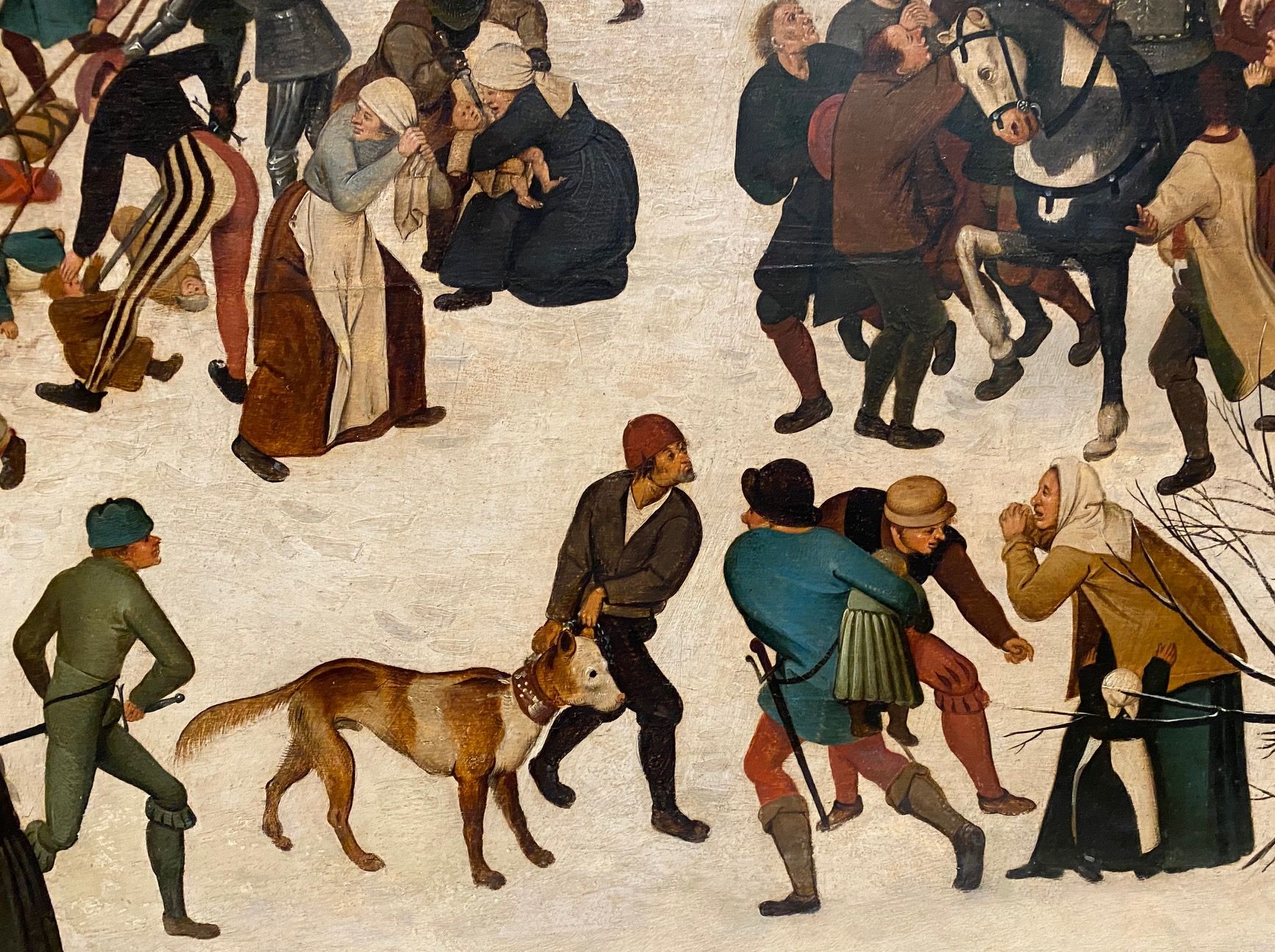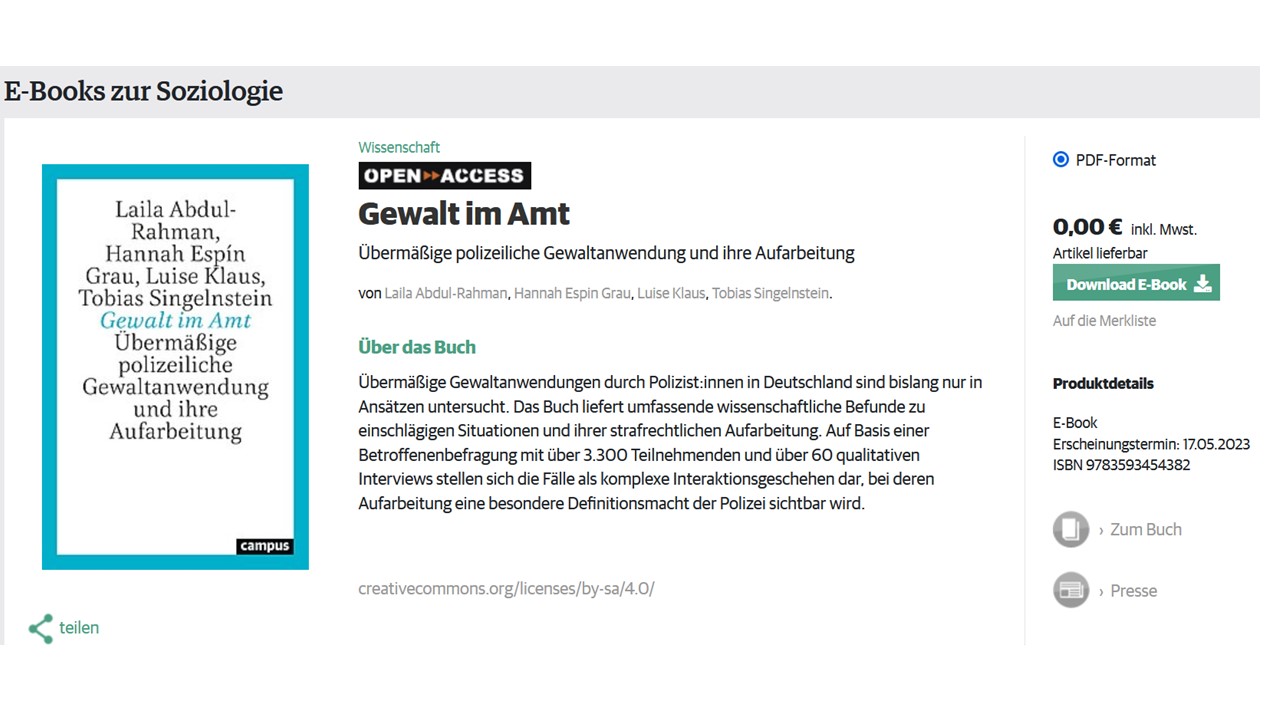Since 2010 and with 18 volumes the documentation of perpetrators assistants free riders during the Nazi rule in Germany has been valuable and reliable source of information (Kugelberg Verlag). The book series defines the perpetrators as the persons excuting crimes themselves or were in command of those who committed the crimes or gave orders to do so. It is not surprising to find evidence of many crimes, but rather that it took such a long time until the documents were published and the descendants were confronted with the facts and the difficult heritage. There are still many who undertake all efforts to deny the facts or try to minimize the guilt of perpetrators. With the real dangers of new right-wing extremism on the rise across Europe and even beyond, it becomes more important to uncover the strategies and biographies of the perpetrators. Certainly the members of the SS were executives and in command of atrocities, so-called NSDAP party officials were also mostly convinced followers of Nazi doctrines and instrumental in the implementation of crimes. Additionally, several professions (line soldiers or medical doctors) were key in the process to ensure the power of the totalitarian regime until the final days. Some persons were cumulating roles and became thereby inescapable spiders in a web of control and crimes. The lessons for today consist in hindering excessive cumulation of mandates, political, professional, military and in other work or civil society related functions. Distribution of power is one form to safeguard the survival of democratic structures. 
Sexual harassment
Under the broader topic of violence against women, we count gender-based harassment at work. The recent report of a survey based on more than 100.000 persons in the European Union in 2021 shows the shocking amount of violence in the last 12 months as well as violence experienced over a lifetime. (Source Eurostat Link to pdf report) These data have to be interpreted with care since it is a well known statistical phenomenon that in some countries such misbehavior is reported and talked about more easily and openly than in other countries. Therefore, the countries with the highest figures, for example in Nordic countries, there it is safe to talk about the issue (Nordic paradox), whereas in other countries violence against women and sexual harassment at work are still much less talked about and addressed in public. Italy even deviated from the joint EU data collection.
It is important to address the topic in the media and lift the cover-up attempts in many societies. This is a process over time, but it is important to continuously raise awareness about the problem. We have made a lot of progress on more equal treatment of women in recent years in most European societies. However, the is need for a “zero tolerance” of violence against women and the sexual harassment at work, which prevents women to take equal shares across all professions. Monitoring the process is an important step, which is necessary to target safety measures in a better way. Further details of the statistics are needed as well to address intersectionality as well. Young women tend to suffer more than older ones. Maybe the latter ones have learned to be more careful to avoid or evade critical situations. It is, however, men who have to reconsider their behaviour towards women at every age, at work as well as at home. 
Violence Potential
The book (editor Sabrow 2023) and the exhibition “Gewalt gegen Weimar. Zerreißproben der frühen Republik 1918-1923” need a broad European audience. The violence, which in the medium term destroyed the newly founded democracy of the Weimar Republic in Germany, is linked to the immediate aftermath of the 1st world war. The relatively calm abolition of monarchy in Germany did in no way prevent the eruption of violence within the new democracy. Extreme forces prepared in organized ways (Organisation Consul) and some in open public discourses the potential for the use of violence. Armaments left over from war equipped the Freikorps Movements and the potential to use the weapons was present at all times in the aftermath of WW1 in Germany. The contributions to the volume provide a detailed account of these 5 crucial years when democracy was able to defend itself against all odds. The strategies to take control of the country were built on a violent rhetoric which prepared the ground to put violent talk into action later on. This spiral of violence is hard to de-escalate once started. However, democracies have to foster ways to calm the spirits in periods of high potential violence. Elections as well as the campaigns before are the arms of democratic change. They should be used as such to pave the way to compromise.

Democracy Enemies
Discussions in the social sciences about the fate of democracy have a long tradition. With the results of participation rates in elections for the European Parliament in 2024 weeks need to take up the challenge again. The book by Bryn Rosenfeld “The Autocratic Middle Class …” stated already in 2020 that autocratic regimes tend tp buy off democratic intentions through providing lots of jobs in the public sector which promise stable living standards and pensions to regime conformity. If the public sector crowds out private sector jobs this creates a tendency to lock in the current political system of autocracy. The analysis, however, lacks the explanation of the micro level sociological mechanism that made the “color revolutions” plausible in many parts of the world. Even the recent success of a government change in Poland in favor of pro European Donald Tusk would have been impossible if the buying of the middle class through public sector jobs is the overriding mechanism to avoid democracy to win the upper hand. Withholding funds to make public sector expansion more difficult or risky in for the longer term stability of an autocratic regime might do the trick. Autocrats have many enemies not only externally. The enemies from inside the society have multiple options for opposition as well. The other perspective that there are many enemies of democracy to be found within the public sector is another known challenge to democracy. Low turnout in Elections is a warning signal that we have to take very seriously and continue to act upon. (Image: Neue Nationalgalerie Berlin 2024 Extreme tension, explation on Ewa Partum)

Checks and balances
The principle of checks and balances refers back to the separation of powers introduced by the French political theorist Montesquieu in his writings “De l’esprit des loix” in 1748. 40 years later in 1788 James Madison wrote as §51 in “The Federalists Papers” explicitly about the system of checks and balances as part of the constitution of the USA. For maintaining the principle of separation of powers it is necessary to install a system of checks and balances between the powers to prevent one power dominating the others. These well-known principles of democracy face, nevertheless, continuous challenges as to the balance of the powers (legislative, executive, judiciary). In order to safeguard democracy a basic scepticism towards the exercise of power is warranted. “In framing a government which is to be administered by men over men, the great difficulty lies in this: you must first enable the government to control the governed; and in the next place oblige it to control itself. A dependence on the people is, no doubt, the primary control on the government; but experience has taught mankind the necessity of auxiliary precautions.” (Federalist Papers, 1788, p. 239).
The necessity of auxiliary precautions has led modern democracies to a multiplicity additional checks and balances. Independent Anti-fraud offices, disciplinary committees within the separate powers as well as the checks and balances between the separate powers play a role in the survival of democracy. Recently, in July 2023 services like the internal service of the police to overlook the adequate execution of the force applied by police have been much in the headlines. Checks and balances apply to each branch of separate powers internally, and if they prove inadequate, they have to be corrected by other powers. This is the procedural as well as fundamental interaction within the separation of power. Presidential systems, where this system of checks and balances has major deficiencies, are very likely to fail its people through an overpowering executive. Neither the country of Montesquieu, nor of the Federalists is free of these dangers. Freedom of speech, freedom of movement and to meet with people, all contribute to strengthen checks and balances in a democracy. “A dependence on the people is, no doubt, the primary control of the government” (p.239). 
Violence 2023
The public debate about violence suffers from a lack of broad scientific reflection of the notion. C.A.J. Coady (1998, Vol.9 pp 615-17). In philosophy at least 2 theories address violence directly. A legitimate definition of violence treats violence as the illegitimate use of force. It is a kind of moralising appeal to reserve violence to those legally well-defined cases that receive their legitimacy from law. Next in the line of reasoning then is the definition of legitimacy. Slaves or colonies in this definition would never be allowed to use violence in their fight for freedom. This is recognised as a logical problem of such a definition. “In a legitimate state, shooting or savage beating by police will not count as violence, if it is a politically legitimate use of force.” (p.615).
The second theory of violence builds on the notion of “structural violence” (Johan Galtung, 1969). Structural violence is a much wider concept of violence. It includes social injustices inflicted on individuals or groups in society (suffering) as well as a broader view on perpetrators beyond individual persons to include police or institutions more generally. Coady stresses the point that both these theories are morally loaded without sufficient justification. Even a narrow definition of violence as “exercise of physical force” is too narrow, as it neglects the devastating effects of psychological violence. Part of the judgement therefore is motivation or intention of the person applying violence to clarify a moral stance. Psychic disorders or abuse in social upbringing are recognized as attenuating influences in legal procedures.
A wise conclusion is drawn by Coady: “Even justified violence is regrettable” (p.617). Living in permanent fear of abuse of violence by criminals or the police narrows the gap between authoritarian regimes and democracies. The basic social fabric of trust in the police is at risk in such a situation. It is very hard to re-establish trust in institutions once groups of society have lost it or even doubt that basic trust in the institutions of democracies is justified. (Image: Part of Pieter Brueghel II, De kindermoord te Bethlehem Musées royaux des beaux arts, Brussels, 16th century). 
Gewaltmonopol
Für Demokratien ist die Frage des Gewaltmonopols eine sehr entscheidende Frage. In gleichem Atemzug muss dabei die demokratische Kontrolle dieses Monopols gewährleistet sein. Verfassungsrecht in Demokratien ist darin eindeutig. Lediglich die Praxis des Rechts gestaltet sich oft schwierig und durchaus wechselhaft. Die Studie von Laila Abdul-Rahman, Hannah Espin Grau, Luise Klaus und Tobias Singelnstein (2023 bei Campus kostenlos downloadbar) greift das wichtige Thema mit einer repräsentativen Studie von 3300 Opfern polizeilicher Gewalt in Deutschland auf (Zusammenfassung). Anders als im amerikanischen Raum fehlt bei uns bisher die Berücksichtigung von Rassismus und räumlicher Verortung in der wissenschaftlichen Aufarbeitung des Geschehens. Das Interaktionsgeschehen oder Eskalationsstufen (S. 31) bieten einen weiteren Ansatzpunkt zukunftsweisend präventiv tätig zu werden. Die Aussetzung der Strafverfahren gegen Polizeibedienstete wegen Gewaltausübung (Körperverletzung) ist mit 93% aller Fälle außerordentlich hoch. Das Kapitel 8 (S. 307ff.) über die strafjustizielle Aufarbeitung offenbart die Randbedingungen der justiziellen Verfahrensweisen.
Das Gewaltmonopol darf nicht in Frage gestellt werden, aber sobald Gewalt des Monopolisten unverhältnismäßig und rechtsstaatlich ungenügend kontrolliert wird, kommt eine politische Gewaltenteilung langsam ins Wanken. Die wehrhafte Demokratie braucht Polizeigewalt, um beispielsweise das Demonstrationsrecht durchzusetzen oder öffentliche Veranstaltungen zu sichern. Aber die Exzesse polizeilicher Gewalt müssen geahndet werden. Solche Anklagen finden wir in England anlässlich der Krönungsfeier, in Frankreich bei Streiks oder Fußballspielen oder in Belgien bei Gipfeltreffen oder Räumungen von Flüchtlingslagern. Das ist keine Randnotiz. Friedlicher Protest ist wesentlicher Bestandteil von Demokratien. Einschüchterung durch Gewaltanwendung ist Teil der dunkelsten Kapitel und muss entschieden unterbunden werden im Friedensprojekt Europa. 

